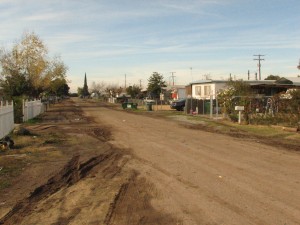
As Sasha Khokha detailed on The California Report this morning, a major U.C. Davis report released today found that more than 250,000 people living in some of California's prime farming areas are at risk of drinking water contaminated with nitrates. The contamination is largely from fertilizer used widely across California farmland and from animal manure from large dairies and other confined animal facilities.
Nitrates are linked to health problems including thyroid illnesses, some cancers and a type of "blue baby syndrome," a blood disorder caused by a high concentration of nitrates which can be fatal to babies.
The new report--Addressing Nitrate in California's Drinking Water--looks at the Tulare Lake Basin, including Fresno and Bakersfield, as well as the Salinas Valley, including Salinas and areas near Monterey.
Khokha has been reporting on the issue of nitrates in drinking water for five years. In 2010, Khokha and The California Report collaborated with California Watch on a multi-platform series "Living with Nitrates." The series later was honored with awards by the Society of Professional Journalists and the Knight-Risser Prize for Western Environmental Journalism.
In that 2010 series, Khokha interviewed a State Water Resources Control Board official who said nitrates took a backseat to more pressing water concerns, such as perchlorate and dry cleaning solvents.